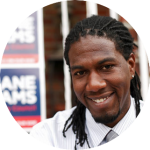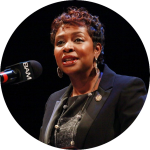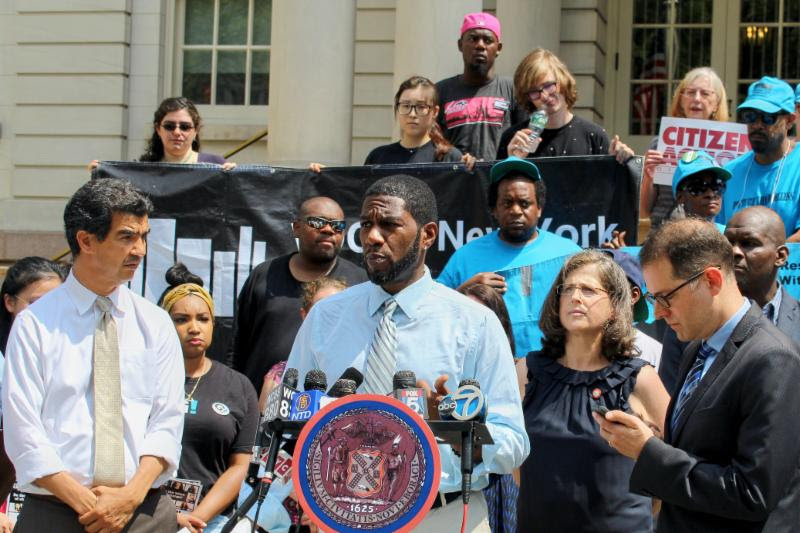The NYPD’s rank-and-file union president said today that City Council Member Jumaane D. Williams’ proposed Right To Record Act makes no sense because the U.S. Constitution already allows citizens to make public recordings and the bill only encourages activists to not only record but interfere with police activity.
But Williams said the measure is about accountability and wanting police to be better at their jobs.

“This is an interesting time in the country. This bill is not anti-police, this bill is about wanting police to be better at their jobs. I appreciate the risks they take every day on the job,” said Williams. “The Right to Record Act is a response to several instances where people, who were recording police activity — which is their constitutional right — were either arrested on trumped-up charges, detained, or had their property damaged for exercising their constitutional right.”
The bill, as proposed, prohibits police officers from interfering with, or intimidating individuals from recording their activities, and establishes a cause of legal action for violating the Act, in which aggrieved individuals to argue their case in court not just on the basis of the First Amendment, but also on the basis of a codified statute.
Additionally, the measure requires the NYPD to submit reports to both the mayor and city council that includes precinct by precinct data on number of arrests, criminal and civil summons issued, and race, ethnicity, gender and age of the person arrested or summonsed.
Several Brooklyn lawmakers also strongly support the bill, which is co-sponsored by Manhattan City Council Member Helen Rosenthal. This includes Congresswoman Yvette Clarke, Assemblywoman Rodneyse Bichotte and City Council Members Inez Barron, Rafael Espinal and Carlos Menchaca.

“The Right to Record Act reinforces the protections of New Yorkers to rightfully record activity taking place in public spaces. It is our hope that members of our community are not intimidated or prohibited from recording clearly visible activity in public,”said Clarke. “As we all work to strengthen our minority communities’ relationship with police forces across the country, we must respect the rights of citizens who seek to lawfully record encounters with police in their communities.”
Bichotte said the legislation is very timely in the wake of the recent shootings of two unarmed black men–Alton Sterling of Baton Rouge, Louisiana, and Philandro Castile of Falcon Heights, Minnesota.
“The footage from those shootings allowed the country to bear witness to the disproportionate level of brutality that many black and brown men and women face every day. Council Member Williams has always been at the forefront of fair-minded legislation that seeks to balance the rights and protections of citizens and law enforcement,” said Bichotte, adding she will introduce similar legislation at the state level.
But NYPD Police Benevolent Association president Patrick J. Lynch said: “Civilians already have a constitutional right to record police officers, so this legislation serves no purpose other than to encourage activists to not only record but interfere with police activity. Instead, the City Council should help the public understand that standing in close proximity to a police officer who is making an arrest creates a dangerous situation for all involved. Helpful legislation would establish a minimum safe distance that onlookers must maintain from police officers.”
PBA spokesperson Al O’Leary added that establishing a minimum safe distance for people to record police actions makes sense so as not to interfere with police in sometimes dangerous situations. It could be 10 or 15 feet, but there should be clearly established parameters, he said.
Williams spokesperson Vania Andre said the standard parameters on staying away from the point of action being filmed is know it when you see it, from the vantage point of a reasonable person. For example, a reasonable person would believe that jamming a camera in the face of an officer inches from her face is interference, she said.
“There isn’t a clause that specifies how far or close the person has to be. However it does mention that the person recording should not physically interfere with the activity the officer is engaging in,” said Andre, adding this point may be discussed further when it comes before city council hearings.






